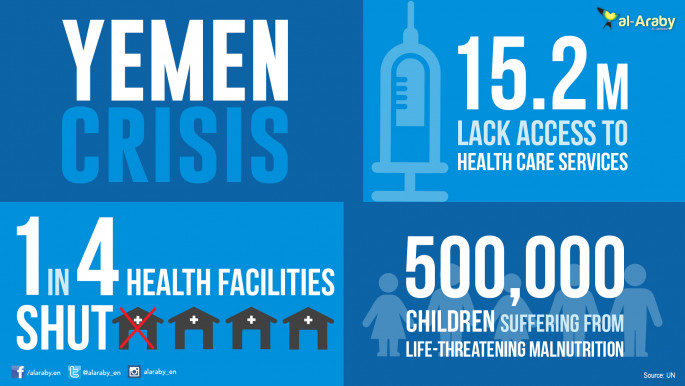War-torn Yemen gets $220 million in aid pledges
More than $220 million of aid has been pledged for war-torn Yemen, during a three-day conference that ended on Wednesday in Doha.
Qatar Charity and the Kuwait-based International Islamic Charitable Organisation each pledged to provide a grant of $100 million, payable over three years. The Qatari Red Crescent also pledged $10 million.
Yemeni government spokesman Rajeh Badi called the situation inside the country "disastrous" as the humanitarian situation worsens.
"The whole of Yemen suffers and sectors of education, health and food are the most urgent," he said.
The United Nations warned this month of a "human catastrophe unfolding in Yemen".
The ongoing deadly violence has left nearly 10 million children facing threats of malnutrition, disease and a lack of education and an estimated 80 percent of the population requires humanitarian aid.
Earlier this year, the UN agricultural agency revealed that more than half of Yemen's population were facing hunger, an increase of 12 percent in the past eight months.
Some 14.4 million Yemenis are food insecure as prices skyrocket due to the conflict and import restrictions, while food and fuel prices in the country have risen dramatically.
Yemen relies on imports for more than 90 percent of its staple foods as only four percent of land is arable - and only a small proportion of that is used to produce food.
 |
|
More than 6,000 people have been killed in the fighting since last March, when a Saudi-led coalition, including Qatari forces, launched a military intervention in Yemen against the Houthi rebels, who are allied with former President Ali Abdullah Saleh.
The 10-nation war on Yemen has been estimated to cost Saudi Arabia $200 million a day, or $6billion per month.
Organisers of the Doha conference said they may have to rely on the UN to deliver aid in areas controlled by rebels.
The pledges come as a report reveals that weapon imports in the Gulf region have soared 200 percent in the past four years.
The report found a surge in sales made to the Middle East and Asian region, with particular focus on Saudi Arabia, United Arab Emirates, Qatar and Egypt.
Figures show Saudi Arabia was the world's second-largest arms importer between 2011-2015, with an increase of 275 percent.
In the same period, arms imports by the United Arab Emirates grew by 35 percent while Qatar saw a 279 percent rise.
Agencies contributed to this report



